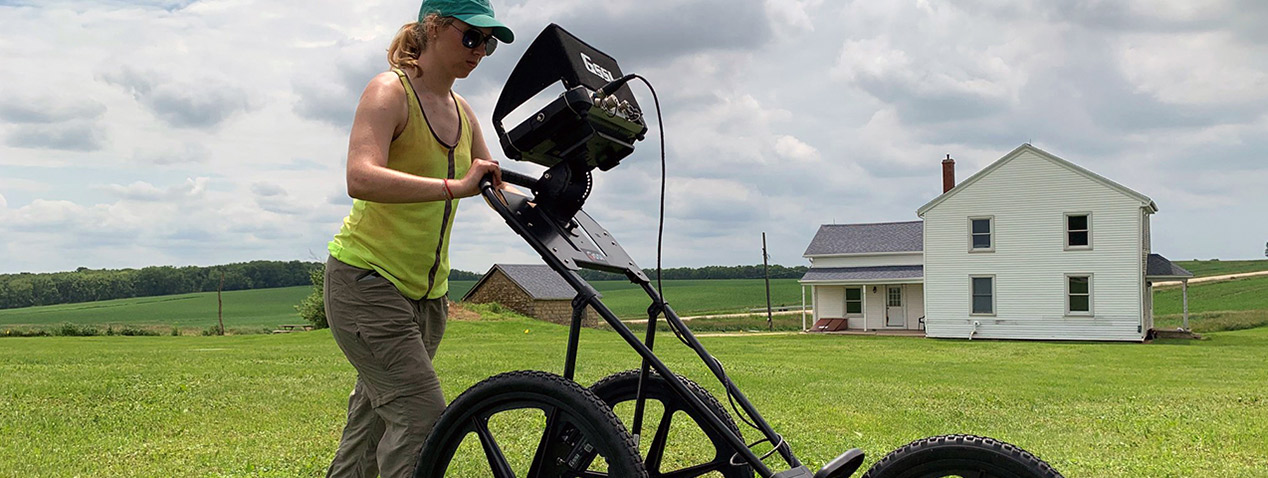Uncover the Human Experience
Anthropology Undergraduate Major and Minors

B.A. in Anthropology
Minor in Anthropology
The minor in anthropology is designed to encourage students to pursue breadth in areas which complement their major. With the assistance of their faculty advisors, students can design a minor reflecting their interest in any of the subfields of anthropology: socio/cultural, biological/physical, archaeological, applied and policy-related studies.
To complete the minor, students take 18 credits. No more than 6 credits at the 100-200 level can count towards the minor.
Minor in Medical Anthropology
The minor in medical anthropology is designed to introduce undergraduates to the field of medical anthropology in order to prepare them for applied work or future research in the area of global health. This minor may be appropriate for students pursuing degrees in the health science, international relations or other social sciences such as anthropology, sociology or political science. Students must take a minimum of 18 credits, with 12 credits at the 300-500 level.
Core Requirements
Majors must complete three required courses (listed below), one Area Focus and Regional Perspectives on Culture course, one anthropological methods course, one anthropological theory course and 15 credits of electives based on student interest.
Introduction to Cultural Anthropology
This course offers an introductory look at topics including economics, politics, religion, symbolism, rites of passage, developmental cycle and expressive culture in different socio-cultural contexts.
Introduction to Biological Anthropology
Examine anthropology’s relationship to the history of science. Topics covered include evolutionary theory; mechanisms of evolution; survey of the non-human primates; humans ancestral to modern Homo sapiens; and modern human variation.
Archaeology
Area Focus and Regional Perspectives on Culture
Methods
Students in the major select at least one methods course, such as Methods in Archaeology, Ethnographic Techniques or Life Histories/Narratives.
Theory
Students can choose to learn more about issues that threaten the security of nations and people. Courses focus on international security, refugees, international law, politics and the military, political conflict, revolutions and humanitarian action in world politics.
Looking for a complete list of courses?

Distinction in Anthropology
The Anthropology Department offers its majors the opportunity to pursue Departmental Distinction. This is awarded to majors who successfully complete an advanced research project involving significant library and/or field work and resulting in a paper of at least 30 pages in length.
Students may pursue Distinction if their overall GPA is 3.4 and their GPA in anthropology is 3.5. Upon successful completion of the project, the student shall receive the designation “Distinction” on his or her final academic transcript. Department Distinction is also granted upon successful completion of the Renee Crown University Honors Program. (No additional paper is required however, paperwork must be completed.)
Get Involved with Undergraduate Anthropology Student Organizations

Art Museum Faculty Fellow Heather Law Pezzarossi Weaves Indigenous Baskets Into Lesson Plan
I think for me, the beauty and simplicity of object-based teaching is that it encourages curiosity and questions through simple observation.”
Heather Law Pezzarossi
Assistant Professor, Anthropology Department